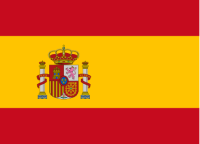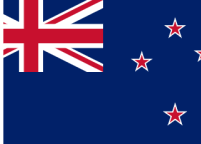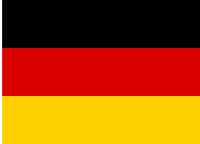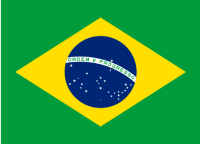About the Hospitality Industry in New Zealand
The hospitality industry includes cafes, restaurants, takeaway food outlets, and bars. In 2019, over 133,000 people worked in New Zealand’s hospitality sector, with more than half (56.5%) employed in cafes and restaurants. Auckland is the heart of this industry, accounting for 39.1% of national hospitality sales, followed by Canterbury (12.3%) and Wellington (10.6%).
In 2021, chefs, waiters, café or restaurant managers, kitchenhands, and sales assistants were the most in-demand roles. These five roles alone made up about half of the total hospitality workforce in the region. In Tāmaki Makaurau (Auckland), hospitality relies heavily on migrant workers, with 37% of employees in food and beverage services in 2021 (an increase from 33.8% in 2012).
In 2021, the sector had nearly 31,000 businesses and employed over 64,000 people in Tāmaki Makaurau, making up almost 7% of the region’s jobs and contributing around 3% to the local GDP. The pandemic had an adverse impact on the Hospitality Industry, with the Restaurant Association of New Zealand (RANZ) reporting a loss of $1.19 billion in the second quarter of 2020 compared to the previous year. The pandemic’s effect on hospitality has been significant and long-lasting.
A survey by RANZ in February 2022 showed that many restaurant owners in Tāmaki Makaurau are facing staff shortages that could even lead to business closures. These challenges are especially tough for city-centre restaurants affected by COVID-19 restrictions, where smaller business owners report working 80–100 hours a week to keep going.
Reach out to us today, to find out how we can assist you in reaching your immigration goals.
Working in New Zealand’s Hospitality Industry
Hospitality in New Zealand may be different from other countries, as the industry is known for its diverse workforce, with employees from various cultural backgrounds.
Flexibility and Variety:
Hospitality roles are lively and varied, ranging from customer service to experimenting with new foods and flavours. Workers often need to be versatile, learning multiple skills as part of their role.
Uniform and Grooming:
Cleanliness and a neat appearance are important in hospitality. Most businesses have grooming and hygiene standards for their employees, partly to meet food safety rules and to ensure a positive image for customers.
Before starting, ask your employer about any specific dress code or grooming standards. If you have cultural or religious needs regarding clothing, discuss these with your employer before accepting the role.
Courses, Qualifications, and Registration for Hospitality in New Zealand
You don’t need formal qualifications or New Zealand registration to work in the hospitality industry, though previous hospitality experience is often preferred by employers. If you’ve worked in hospitality abroad, your skills will likely be relevant to the New Zealand environment.
Some employers may ask you to obtain specific certifications once you start working in New Zealand. For example, if your role includes serving alcohol, you might need to acquire a Manager’s Certificate by completing the Licence Controller Qualification (LCQ) course.
Planning to Study – Hospitality and Tourism Programs in New Zealand
Auckland Institute of Studies
- Program: New Zealand Diploma in Hospitality Management (Level 5).
NorthTec
- Programs:
- New Zealand Certificate in Cookery (Level 4).
- New Zealand Certificate in Baking (Generalist) (Level 4).
- Website: NorthTec
Toi Ohomai Institute of Technology
- Programs: Bachelor of Applied Hospitality and Tourism Management.
Southern Institute of Technology
- Program: New Zealand Diploma in Hospitality Management (Level 5).
- Overview: Prepares students for careers in hospitality and tourism, covering areas like facilities, inventory, operations, and staff management.
Let’s Start Your Success Story
Simply fill up a quick form, which will help us contact you and schedule your first consultation, free of charge.
Using Overseas Qualifications in New Zealand
If you plan to use an overseas qualification to work in hospitality, make sure it’s recognised in New Zealand. You may need to have your qualification assessed by Qualifications Recognition Services (QRS) through the New Zealand Qualifications Authority (NZQA) to see if it aligns with the New Zealand Qualifications Framework (NZQF).
Note: Recognition by Immigration New Zealand for a residence visa is different from NZQA’s assessment, which may still be needed.
Training Options for Hospitality Work
If additional training is needed, discuss available support options with your employer. Strengthening or formalising your skills can be done through workplace training or external courses.
Industry Training Organizations (ITOs)
- ITOs partner with the industry to provide workplace training, set qualification standards, and address skill development needs.
- Service IQ is the ITO for the hospitality industry, and it includes health and safety training.
Private Training Establishments (PTEs)
- PTEs offer training in hospitality, from entry-level to postgraduate programs. They are registered with NZQA to meet national standards.
- To find relevant courses, you can search for “hospitality” on careers.govt.nz.
Hospitality Resources and Associations
- Restaurant Association of New Zealand – Support and resources for hospitality professionals.
- Hospitality New Zealand – Offers industry resources and support.
For more formal qualifications, polytechnics and institutes of technology in New Zealand are listed on the NZQA website.
Working Conditions in New Zealand’s Hospitality Industry
Wages
The average pay in hospitality varies based on the role, location of the business, and employee skill level. According to the 2022 Hospitality Remuneration Survey:
- Chefs: Earn between $20 to $36.37 per hour, on average.
- Duty Managers: Earn approximately $25.58 per hour.
- Restaurant Managers: Earn about $28.36 per hour.
For more information information about minimum and median in NZ, read the detailed guide(Read More).
Hours of Work
Hospitality workers in New Zealand have the flexibility to work part-time or full-time, with both options providing equal employment rights. Part-time work is common, with many employees working fewer than 30 hours per week.
Important: If you hold an Essential Skills Work Visa, you must work a minimum of 30 hours per week.
Ready to Begin Your Kiwi Journey?
20+
Years of Expertise
300+
Google Reviews
Flat Fee
& Transparent Pricing
Job Profiles and Expected Salaries in New Zealand Hospitality
Chef / Cook
- Demand: High
- Salary Range: $25 – $40 per hour (depending on the organisation)
Food & Beverage Manager
- Salary Range: $50,000 – $100,000 per year (varies by organisation)
Room Attendant
- Salary Range: $20 – $30 per hour
Receptionist
- Salary Range: $20 – $35 per hour
Venue Manager
- Salary Range: $25 – $40 per hour
Café / Retail Manager
- Salary Range: $25 – $50 per hour
Applying for a Visa to Work in Hospitality Industry
Various visa options are available for those interested in hospitality jobs in New Zealand:
- Working Holiday Visa: A temporary visa available for citizens of certain countries that have agreements with New Zealand.
- Post-Study Work Visa: This visa is available to those who have completed a Level 7 or higher qualification in New Zealand.
- Skilled Migrant Category Resident Visa: This is for those with skills in demand in New Zealand.
- Accredited Employer Work Visa: For jobs offered by accredited employers in New Zealand.
- Entrepreneur Work Visa: This is for individuals looking to start their own business in New Zealand.
Special Visa for chef in New Zealand
The New Zealand government has provided special visas for a few countries to employ chefs. The length of stay of these Visa is typically up to 3 years.
Thai Chefs Work Visa
This visa is available to citizens of Thailand who have a full-time job offer as a Thai chef and possess the required qualifications and experience for the role. Employers supporting a candidate’s visa application must provide a full-time job offer as a Thai chef.
Indonesia Special Work Visa
If you are considering hiring someone from Indonesia as a chef, Halal slaughterer, or Bahasa teacher’s aide, they may qualify for this visa category. To support their visa application, you must provide a job offer specific to the role they would be performing in New Zealand. There is no requirement to verify first whether New Zealanders are available for the position.
China Special Work Visa
Citizens of the People’s Republic of China can apply for this visa if they have a job offer as a qualified chef, practitioner of traditional medicine, Mandarin teacher’s aide, Wushu martial arts coach, or tourism specialist.
Vietnam Special Work Visa
Vietnamese citizens may apply for this visa if they have been offered work in New Zealand as a chef or engineering professional. Candidates must also meet the qualifications required for the offered position.











